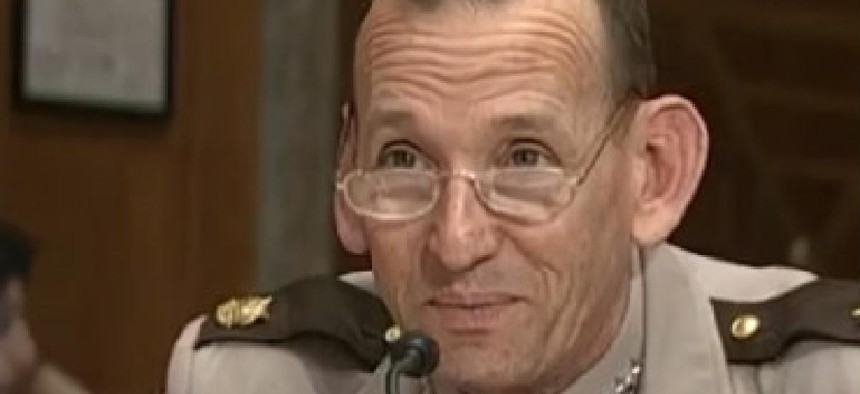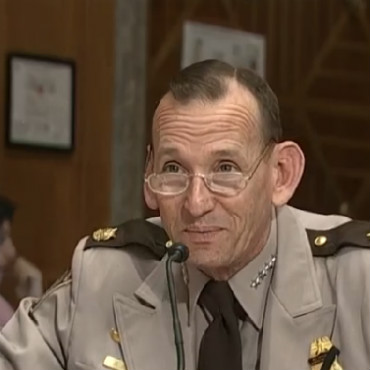Border official tapped to head Secret Service

President Donald Trump announced the appointment of Maj. Gen. Randolph "Tex" Alles, a veteran Marine and border control official, to serve as the new director of the Secret Service.

Randoph "Tex" Alles, shown here testifying before Congress in 2015, is President Trump's pick to head the Secret Service.
President Donald Trump on April 25 announced the appointment of a senior border control official to serve as the new director of the Secret Service.
Maj. Gen. Randolph "Tex" Alles, who took over as acting deputy commissioner of U.S. Customs and Border Protection on Inauguration Day, will succeed acting director William Callahan in the top job.
Alles led CBP's Air and Marine Operations after retiring from the Marine Corps as a two-star general in 2011.
House Oversight Committee Chairman Jason Chaffetz (R-Utah), who has long been a critic of the senior leadership and IT management of the Secret Service, applauded the decision to hire a director from outside the organization.
"Appointing a director from the outside adds a necessary new perspective and fresh approach to their zero-fail mission," Chaffetz said in a statement. "While I commend this important step forward, there are still many systemic problems that continue to plague the agency, including a staffing crisis and increasingly demanding investigative mission."
Technology management at the Secret Service has been a matter of longstanding concern, from oversight committees in Congress and from the Department of Homeland Security Office of Inspector General.
In October 2016, the DHS IG reported on unauthorized security access, unprotected data files and "ineffective" IT management practices at the Secret Service.
The report stated that IT management had not been an agency priority, and concluded that until Secret Service improved its IT governance, its systems and data would remain vulnerable.
At the time, Chaffetz, whose own archived Secret Service application was leaked to media outlets, questioned the Secret Service's cyber responsibilities.
"The Secret Service believes they have a core mission to protect the nation's financial infrastructure from cyber-related crimes, yet can't keep their own systems secure," the congressman said in a statement. "Despite past warnings, [the Secret Service] is still unable to assure us their IT systems are safe."
The Secret Service has also been plagued by tech struggles in other areas. In February 2016, the DHS IG urged the agency to upgrade its legacy radio systems, and in August 2016 began prep work on its new threat tracking database.
NEXT STORY: CDM in the trenches


